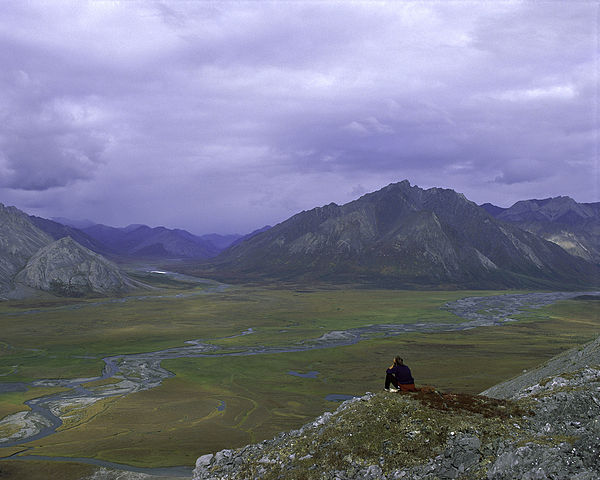As government conversation moves closer to the funding of oil drilling in protected Alaskan lands, the Episcopal church is speaking out against the threat to environment, wildlife and native people, continuing a conversation that was a highlight of the House of Bishops’ fall meeting in Alaska. From the Episcopal News Service:
The Gwich’in, mostly Episcopalians because of the church’s early missionary work in the region, are one of the largest Native communities in Alaska. Those who live in the small villages of the Alaskan Interior still follow many of the traditional subsistence ways of life that their families have for thousands of years, though that lifestyle now faces environmental, cultural and economic threats.
The fate of the Arctic National Wildlife Refuge loomed large during the bishops’ time in Alaska in late September. They learned that the Gwich’in are trying to protect the part of the refuge that serves as a major caribou birthing ground and is considered sacred by Native Alaskans. The caribou, hunted only after the herds migrate south, are a critical part of the villagers’ diet.
“People actually had the wisdom to set aside some areas so they would not be open to development, and they really are crucial to future generations,” Princess Johnson, a Gwich’in activist and an Episcopalian, told the bishops during one of their sessions.
The threat is still unrealized, but 19.6 million acres of wildlife refuge are the likely target:
No drilling has yet been approved, but on Oct. 19, the Energy and Natural Resources Committee, led by Alaska Sen. Lisa Murkowski, preserved a measure in the Republicans’ proposed budget that calls on the committee to find $1 billion in revenue through federal leasing. That measure doesn’t specify drilling in Alaska, though the Arctic National Wildlife Refuge is the most likely target.
“It is the best option, and it’s on the table,” Murkowski, a Republican, said, according to a Washington Post report. “It’s about jobs, and job creation. It’s about wealth and wealth creation.”
[Diocese of Alaska Bishop Mark] Lattime, in his statement to ENS, acknowledged the economic benefits of drilling, but the “true cost of these benefits” – to the Gwich’in and to the environment – “is never accurately measured.”
“We are called by our baptism to strive for justice and peace among all people and respect the dignity of every human being,” he continued. “The value of the ANWR ecosystem and the Gwich’in people is beyond measure, and we have a moral stewardship obligation to recognize this value and to preserve it.”
The Episcopal Church House of Bishops issued a letter in September:
The Episcopal Church’s Office of Government Relations has stepped up its advocacy on the Arctic refuge as has lawmakers have renewed the possibility of drilling in its 19.6 million acres, which only Congress can approve.
“This sacred land is under threat,” Office of Government Relations said in a Sept. 27 policy alert to its network asking Episcopalians to contact their representatives. “The Episcopal Church has long stood by the Gwich’in, defending their right to exist and feed themselves. As the bishops of the church call us to prayer, education, and reconciliation, we must also act.”
Image: Steven Chase, U.S. Fish and Wildlife Service, via Wikipedia

